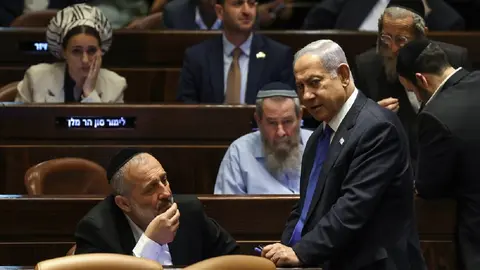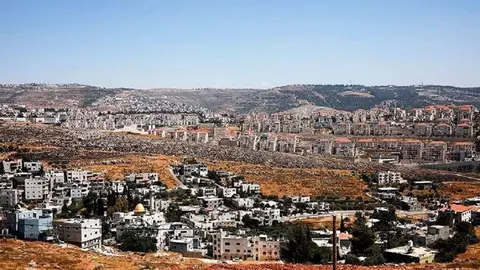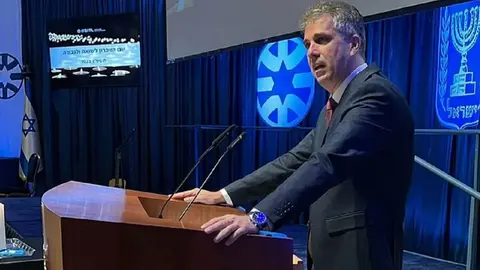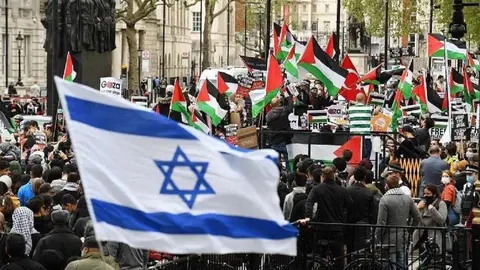Saudi diplomatic moves on Israel

Nayef al-Sudairi, currently Saudi Arabia's ambassador to Jordan, has also been appointed envoy to the Palestinian Authority (PA) and consul general in Jerusalem. This is more than just an appointment to fill vacant diplomatic posts. This is the first time Riyadh has placed a non-resident ambassador to the Palestinian Authority, underlining the usual Saudi foreign policy line that resolution of the Palestinian issue or problem will not be unrelated to the 'normalisation' of relations with Israel.
The Israeli state and the US aspire to Arabia's eventual accession to the Abraham Accords, which the UAE, Bahrain, Morocco and Sudan have already signed.
Al-Sudairi's serving also as consul general in Jerusalem is also a gesture of great diplomatic significance. It is first and foremost a recognition of Palestinian rights over the eastern part of the thrice holy city, which remained in their possession after the partition that gave birth to the state of Israel, and which Israel occupied after the Six-Day War (1967). In the absence of an embassy, al-Sudairi's appointment would not be subject to the approval of Israel, which considers Jerusalem its eternal and indivisible capital.
The presentation of Al-Sudairi's credentials took place at the PA mission in Amman, which handed them over to Majdi al-Khaleidi, diplomatic adviser to President Mahmoud Abbas, according to Europe Jewish Press. Calling the ceremony "an important step in the strong relations between two brotherly countries [Palestine and Saudi Arabia], Khaleidi expressed the thanks of Ramallah, the PA headquarters, to Riyadh "for Saudi Arabia's firm stance in support of the Palestinian people and its continued support for their cause in international fora".
It so happens that the new Saudi diplomatic envoy to the PA is a cousin of Crown Prince Mohammed bin Salman, who decides, monitors and oversees all steps towards normalisation of relations with Israel. Generally known by his initials, MBS, the real strongman of the Saudi monarchy is said to have demanded strong guarantees from the US, especially on military and security issues, in order to conclude the intended deal with Israel.
In early August, the US newspaper The Wall Street Journal claimed to have confidential information that diplomats in Washington and Riyadh were already finalising the details of the "most far-reaching Middle East peace deal in a generation".
Spurred by the undoubtedly self-serving leak of such negotiations, Israeli Prime Minister Benjamin Netanyahu told Bloomberg television that 'we are on the verge of a historic turning point, if there is political will there will be a way to achieve normalisation and formal peace between Saudi Arabia and Israel'. The head of the Israeli government described the economic consequences for investors as "enormous".
Asked point-blank in subsequent appearances what concessions he would be willing to grant the Palestinians, Netanyahu declined to give specific examples. He did, however, outline a general framework: 'I would not be willing to give anything that would endanger Israel's security, but that does not preclude room to discuss other possibilities. The Palestinians should have all the powers to govern themselves, but none to threaten Israel, which means that in any final peace agreement with the Palestinians, Israel must have superior security oversight power over the whole area. Otherwise, we will collapse and so will they".
Call for the military to defend democracy
All these moves come at a time when tensions within Israel remain high, stemming from the crisis over the government's determination to curtail the powers and independence of the Supreme Court.
It has now been eight months, thirty-two weeks of uninterrupted popular protest demonstrations. If last Friday the head of the air force warned of a weakening of the country's security in the face of the refusal of volunteer fighter pilots to report for duty, this weekend it was former general Amiram Levin who called on the Israel Defense Forces (IDF) to stand up to the most radical ministers - Finance Minister Bezalel Smotrich and Security Minister Itamar Ben Gvir - who "are dragging us into [committing] war crimes". Levin, addressing the crowd gathered around Tel Aviv's Kaplan Avenue, concluded his plea by urging that "if the terrible moment comes to decide between the Supreme Court and a government of criminals, choose democracy. We will stand behind you fearlessly and unreservedly".
Kaplan Avenue also became the scene of the first joint demonstration by Jews and Arabs against the Netanyahu government's reform of the judiciary. It was the so-called March of the Dead, whose general slogan was "No democracy without Bagatz". Bagatz is the Hebrew acronym for the Supreme Court of Israel.
Sondos Alhoot, the most well-known promoter and activist among the organisers of the event, accused Smotrich and Ben Gvir, but also Netanyahu, of "doing their best to keep Jews and Arabs away from each other, but they won't succeed".





